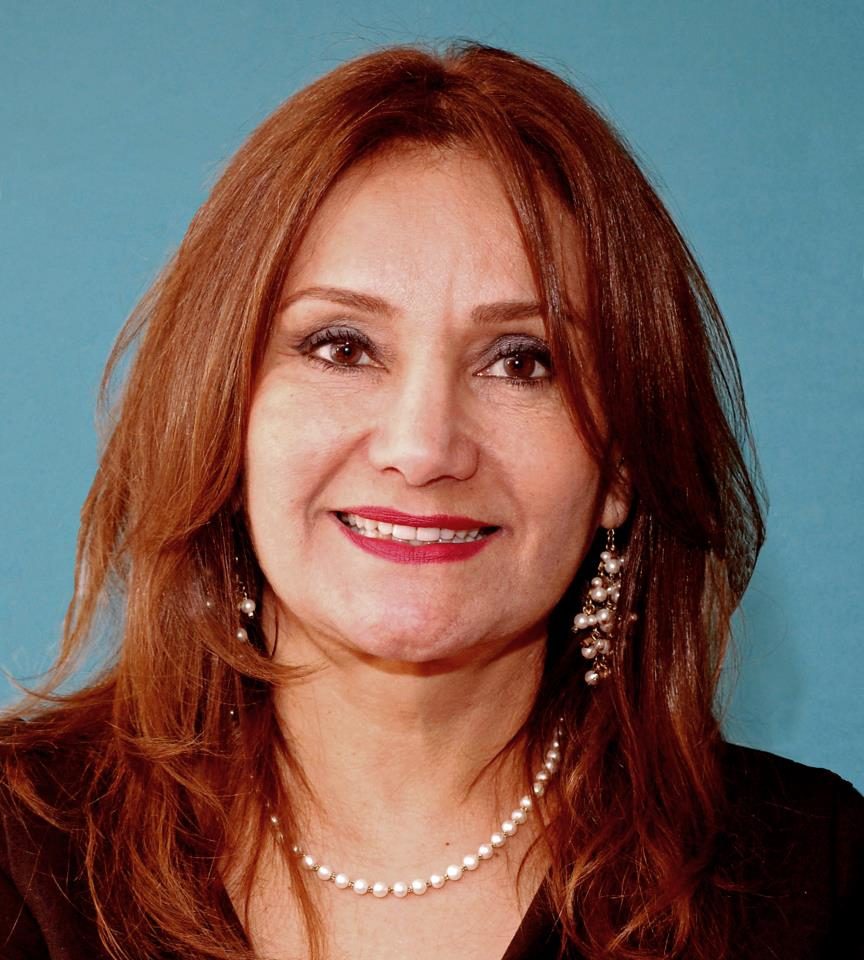

Born in Cairo, Nonie was later raised in the Gaza Strip. In the 1950s, Egypt occupied Gaza and Gamal Abdel Nasser, who later became Egypt's president, appointed her father to lead the fedayeen guerilla operations, whose sole mission was to destroy Israel. As Nasser rallied the Arab world to wipe out the Jewish State, Arabs throughout the Middle East flooded into Gaza to join the fedayeen headed by Nonie's father, Lt. Col. Mustafa Hafaz. The fedayeen became the model for modern terrorist organizations.
Growing up in an environment of intense hatred, Nonie witnessed firsthand the death and destruction Fedayeen operations caused. By attending Gaza elementary schools, she and her siblings were indoctrinated in anti-Semitism at an early age.
Jews, she said, were portrayed as evil enemies of Islam who had no right to be in the region at all. "We were never told of the Middle East roots of Judaism and Christianity," Nonie says. Jews also were to be hated and feared. "I was told not to take any candy from strangers since it could be a Jew trying to poison me," Nonie recalls. Another common teaching in Nonie's upbringing was that Israeli soldiers, upon seeing a pregnant Arab woman, would bet on the sex of the child and then kill the woman and split open her womb to find out who had won.
"I learned that hate, vengeance and retaliation are important values to protect Islam and Arab honor," Nonie says, recalling her education as a young girl. "Self-criticism or questioning Arab teachings and leadership was forbidden and could only bring shame, dishonor and violence open those who dared try. Peace was never an option and never mentioned as a virtue." A line from a popular song children sang at recess was, "Arabs are our friends and Jews our dogs."
"The severe indoctrination is devastating on children," Nonie says. "Those who end up as terrorists are simply the ones who took their education and upbringing seriously and did what they were told."
In 1956, when Nonie was eight, her father was assassinated by the Israel Defense Forces. He became a national hero, a "shahid," and a symbol for the resistance against Israel. Nonie believes the culture of hatred and jihad caused his death; as a young girl, she began to question the society and traditions in which she had been steeped.
Her family later moved back to Egypt where Nonie earned a bachelor's degree in sociology/anthropology from the American University in Cairo. She worked as an editor and translator for the Middle East News Agency and attended several international conferences. This exposure motivated her to leave Egypt and move to the United States in 1978.
After moving to the United States, Nonie increasingly began to realize the extent and impact of the indoctrination of her formative years in Gaza and Egypt. Despite the risks to her own personal safety, Nonie decided she had to speak out. As a mother and a proud Arab woman, she decided she didn't want to see future generations of Arab children programmed to hate and to be intolerant.
Nonie's message is not about disloyalty but love for her culture of origin. She blames Arab leadership and the media for the endless rage and violence of the Arab street.
"Hate speech cannot only be blamed on schools, since it starts and is spoon-fed to Arab children from birth and continues throughout life - inside the family, in mosques, radio, TV, cartoons and newspapers," Nonie says. "The social pressure for hatred and anti-Semitism results in a mob mentality that is hard to escape. That is the mechanism Muslim society uses to guarantee a constant flow of a Muslim army ready for jihad."
Nonie believes there is a solution. That solution, she says, must begin with soul-searching by Muslims both in the Middle East and the United States. Looking inward, says Nonie, is the first step to restoring Arab culture to its original greatness. Ultimately, she hopes to see a reformation in the Islamic world similar to that experienced in Christianity and Judaism centuries ago.
Nonie is married and the mother of three children. She is a freelance writer, public speaker and an interpreter. Her articles have been published in the U.S. and international media and she lectures regularly, bringing her positive message and call for change to audiences across the country.